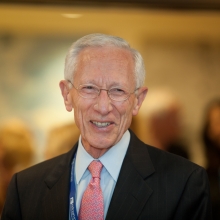Ziv Zwighaft: Ultramarathoner, ultra-scientist
Students

Running long distances isn’t just a hobby for Ziv Zwighaft. It dovetails perfectly with his passion for science—the circadian clock and human metabolism.
A PhD student in the lab of Dr. Gad Asher of the Department of Biological Regulation, Zwighaft researches the mechanisms of circadian rhythm, and in his spare time frequently competes in ultra long-distance marathons of up to 217 km (regular marathons are 42.2 km), with all the required training, usually daily, that goes with it.
The circadian clock is a biochemical mechanism that synchronizes body functions and behavior with geophysical time. It is based on a 24-hour cycle that corresponds to regular days and nights and enables an organism to predict, and prepare for, the daily routine and its challenges.
“Being aware of my body’s circadian rhythms helps me best prepare for races,” says Zwighaft. For instance, the body’s greatest cardiovascular and muscle strength is around 4 pm. Races can take up to 48 hours - non-stop. So runners can foresee “the fatigue crises” that occur at the opposite time (like at 2 am). Nevertheless, they must prepare themselves mentally and physically at the highest levels of fitness. And learning is a twoway street as he gleans not only knowledge from his sport that informs his research, but also manages to challenge what he calls his “grit reservoir” that reinforces his persistence on the scientific front.
The longest competition he took part in was a single- day, 217 km race—slightly longer than five consecutive marathons. It took him about 27 hours to complete - a new Israeli record. But, he says, the most memorable and strenuous race he participated in was the Ultra Trail du Mont Blanc (UTMB), a 168 km race that circles the Alps. The trail included ascents and descents of more than 9600 m. “It was the hardest and longest I have ever completed - it took me more than 28 hours—and I gained very deep insight into my soul in the process. I learned that I have the ability to endure even in the most severe conditions.”
Meanwhile, he adds, scientific research is a lot like distance running: “You have to pace yourself, knowing when to push and when to slow down a bit; you have to be prepared for the obstacles in your path; to remember you’re in it for the duration,” he says. “But achieving the goal makes it all worth it.”








